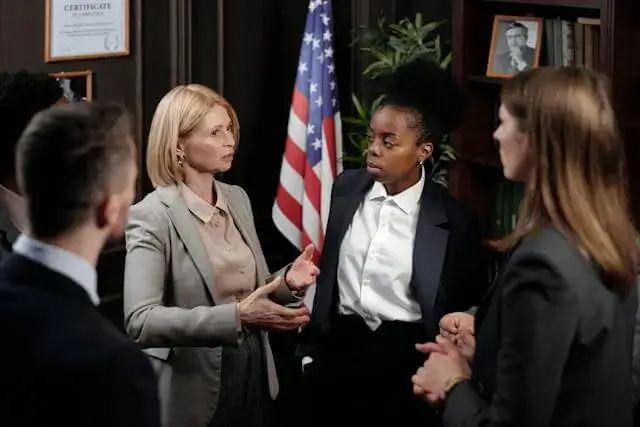Introduction: Brief Overview of Unwarranted Copyright Notices
The digital era presents a myriad of legal nooks and crannies, and one essential crevice in this framework is honest copyright, a robust protective shell around creative intellectual output. However, the surge of fraudulent copyright claims—referred to as false copyright—not only disrupts this legal framework but also raises many questions and concerns. This comprehensive guide will unravel the mystery behind false copyright and arm you with the necessary tools to navigate this burgeoning issue in the world of intellectual property.
What is False Copyright?
False copyright—or, as it’s alternatively known, an illegitimate copyright claim—occurs when an entity wrongfully lays claim to another’s original work. This issue extends to incorrect takedowns due to copyrighted content allegations and can severely distort the legal landscape, sparking unnecessary legal disputes and creating significant obstacles in the path of content distribution.
The Legal Framework Around False DMCA Claims
US Copyright Law
In the United States, false copyright accusations often fall under false DMCA claims. The Digital Millennium Copyright Act (DMCA) was established to safeguard copyrights in the digital arena. However, submitting false DMCA takedown notices qualifies as perjury and thus, the offender can be legally punishable.
Global Perspectives
International law, mainly the Berne Convention, has robust rules concerning copyright. However, it does not explicitly tackle the issue of unwarranted copyright notices, creating a potential legal loophole that ill-intentioned entities might exploit.
Delving into Unjust Copyright Claims
Impact on Content Creators
Illegitimate copyright claims place an immense burden on content creators, forcing them to confront unwelcome content takedowns, loss of revenue, and the possibility of legal disputes, which hampers their creativity and enthusiasm for producing original content.
Implications for Claimants
Submitting fraudulent copyright claims might appear beneficial initially, but this unscrupulous strategy can ultimately lead to legal consequences, including hefty fines and a tarnished reputation.
Case Studies of Incorrect Takedowns
Several high-profile cases highlight the repercussions of false copyright allegations. For instance, the recent unresolved dispute between Brunton Music and UMG Recordings shed light on the negative effects of these unjust claims, with Brunton Music facing financial setbacks due to a false copyright claim.
Navigating False Copyright Claims: Tips and Best Practices
- Knowledge is Power: Gain a solid understanding of both national and international copyright laws. This knowledge forms your first line of defense against misdirected copyright claims.
- Consult Legal Experts: When faced with a potential issue, seeking expert legal advice is a safe and prudent course of action.
- Hold onto Your Documentation: Proof of original work, usage history, licenses, permissions, and other official documents can make a significant difference in arguing against a false copyright claim.
Conclusion: Demystifying False DMCA Claims
Tackling fraudulent copyright claims might seem daunting, but staying well-informed and prepared can protect creators from inappropriate interference. For those contemplating false copyright claims as a potential strategy, it’s essential to realize that the legal and ethical consequences greatly overshadow any temporary benefits.
In an era where creativity forms the cornerstone of digital content, adhering to proper copyright practices becomes increasingly crucial. Original art deserves respect and acknowledgment, and every creator deserves their fair share of credit. False copyright does more than just steal content—it stifles the flow of creativity and crosses the ethical lines of digital citizenship.
Example of Request to Review Fraudulent copyright claim on YouTube
Subject: Request to Review False Copyright Claim on YouTube
Dear YouTube Team,
I am reaching out to you to kindly request a review of what I believe to be a false copyright claim made on my channel's content. I have the necessary rights to use the material in question, as the video falls under the Creative Commons license. By following the guidelines for this license, I am permitted to use the content as long as I provide proper attribution and source link. If you refer to the video description, you will notice that I have fulfilled these requirements.
Regarding the audio used in the video, I am a pro member of Upbeat and have the right to use the audio without facing any copyright claims. Please find the attached link for your reference.
I kindly ask that you reevaluate the copyright claim made against my content and consider removing it upon finding that I have followed all necessary guidelines and requirements.
Thank you for your attention to this matter.
Sincerely,
[Your Name]Dispute a Content ID claim with google

